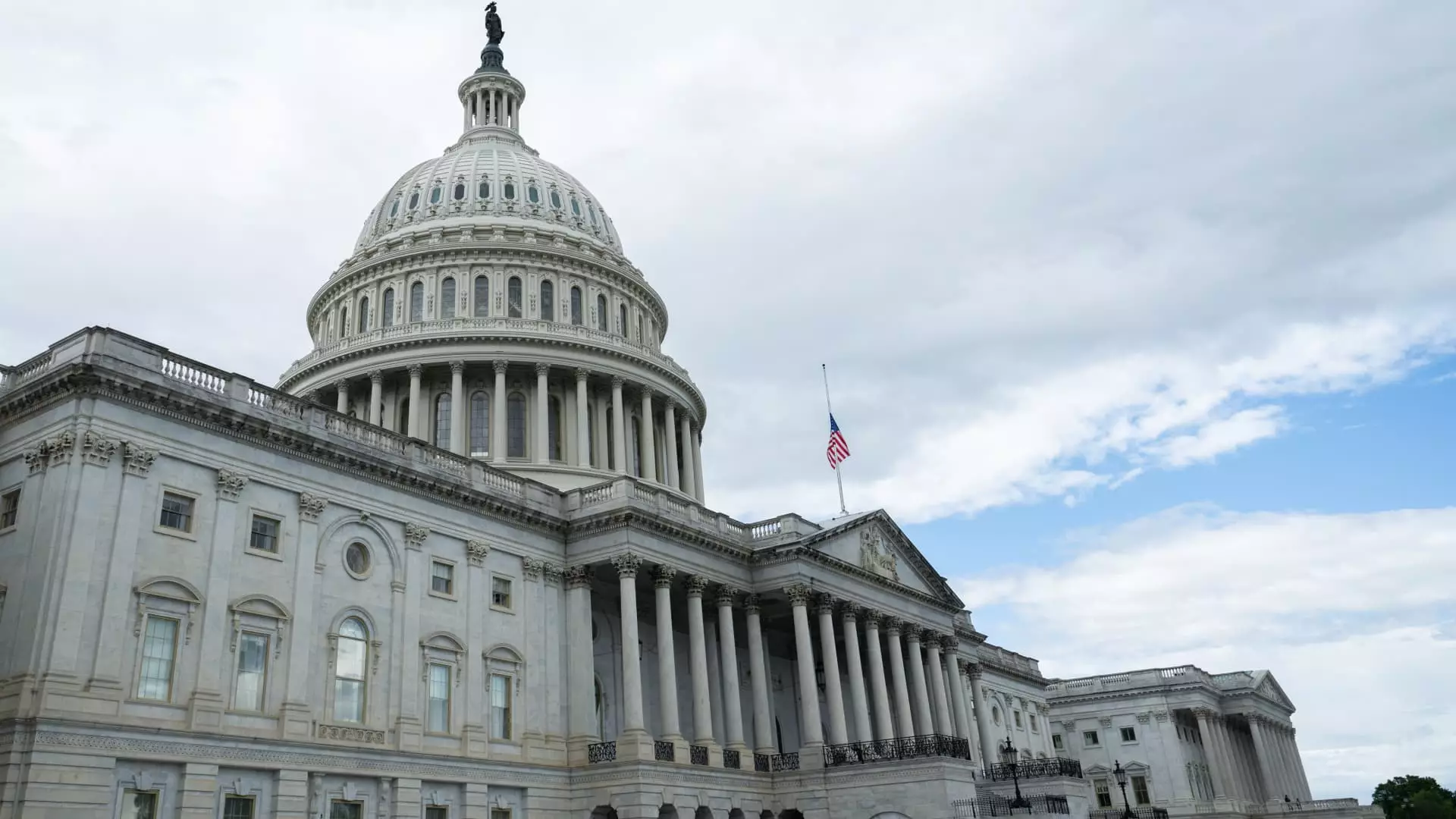The recent tax cut legislation approved by House Republicans poses a significant threat to the economic stability of the United States, with predictions indicating an alarming increase in national debt by trillions of dollars. The implications of this legislative action reveal a profoundly irresponsible approach to fiscal policy—one that treats debt as a mere tool for political gain rather than a pressing concern for future generations.
Estimates from the Committee for a Responsible Federal Budget suggest that this bill could add approximately $3.1 trillion to the national debt over ten years. A more conservative estimate by the Penn Wharton Budget Model places that figure at $3.8 trillion, including interest and secondary economic impacts. By any standard, these are not just numbers—these are fiscal bombshells that could escalate into a currency crisis if unchecked.
Concerns From Within: Party Division on Debt Matters
Even among Republican ranks, there is discontent regarding the debt implications of this massive tax cut. Representative Thomas Massie of Kentucky succinctly referred to it as a “debt bomb ticking,” capturing the anxiety surrounding the bill’s staggering deficit contributions. His concerns are echoed by Senator Rand Paul, who lamented that “the math doesn’t really add up,” emphasizing a growing rift within the party over fiscal responsibility.
This rising dissent suggests a critical moment for the GOP, as its more conservative members grapple with the reality that an ever-increasing national debt fosters economic fragility, rather than strength. The notion that temporary tax cuts can stimulate long-term economic growth without a corresponding fiscal plan is a dangerous illusion. While major tax incentives for the wealthy might sound appealing in theory, the long-term ramifications on economic health could leave the average American grappling with higher costs and diminished financial security.
The Ripple Effect on Everyday Consumers
It’s disheartening how lawmakers discuss national finances as if they exist in a vacuum. The reality is stark; the average American household will eventually feel the effects of rising national debt through increased taxes, inflation, and higher borrowing costs. Economists such as Mark Zandi, chief economist at Moody’s, warn that higher levels of debt will lead to increased interest rates, causing consumers to pay significantly more for mortgages, cars, and other essential loans.
At present, the burden of massive federal debt is already influencing bond markets, pushing up interest rates. The 10-year Treasury yields—a cornerstone of consumer loans—may spike as financial markets react to heightened risk perceptions. A scenario in which a typical mortgage rate rises from around 7% to over 7.6% may seem incremental, but for many potential homebuyers, particularly first-timers, this could push homeownership out of reach entirely.
The Illusion of Offsetting Revenue
Some proponents of the tax cut scheme suggest that revenue generated from tariffs imposed on imports will mitigate the costs incurred by tax cuts. However, this reasoning lacks robust foundation. Tariffs are inherently unpredictable and often reprised by subsequent administrations. Such a “revenue generator” is uncertain at best, a concept that fails under rigorous economic scrutiny—it is merely a band-aid solution on a festering wound.
In essence, offsetting tax cuts with unreliable tariff revenues creates an even more unstable financial environment, ultimately inviting trouble. Investors who typically rely on the stability of U.S. Treasury bonds are already feeling apprehensive, and uncertainty about the federal government’s ability to manage its financial affairs will exacerbate this instability.
Path to Financial Turmoil: A Bitter Step Backwards
The passage of this legislation is akin to pouring gasoline on an already smoldering fiscal fire. As Kentucky economist Kent Smetters highlighted, the debt-to-GDP ratio could soar alarmingly high, making the country’s financial standing precarious. Allowing the debt burden to spiral out of control is not a policy for progress; it is a reckless gamble that squanders opportunities for sustainable growth and security.
Lawmakers must be held accountable for their actions, and the chilling reality that a massive boost to the national debt could break the backs of consumers on the front lines looms large. When faced with the choice of either boosting the financial wellbeing of wealthy constituents through tax cuts or ensuring responsible fiscal policies that benefit the broader population, it is clear which course is morally responsible.
The primary question remains: will the electorate stand for this irresponsible governance that pits current prosperity against future anguish, risking the economic stability that has defined American progress? Those in power must sincerely rethink their strategies—because ignoring the harsh realities of debt while championing fiscal ‘austerity’ is not stewardship; it’s betrayal.

